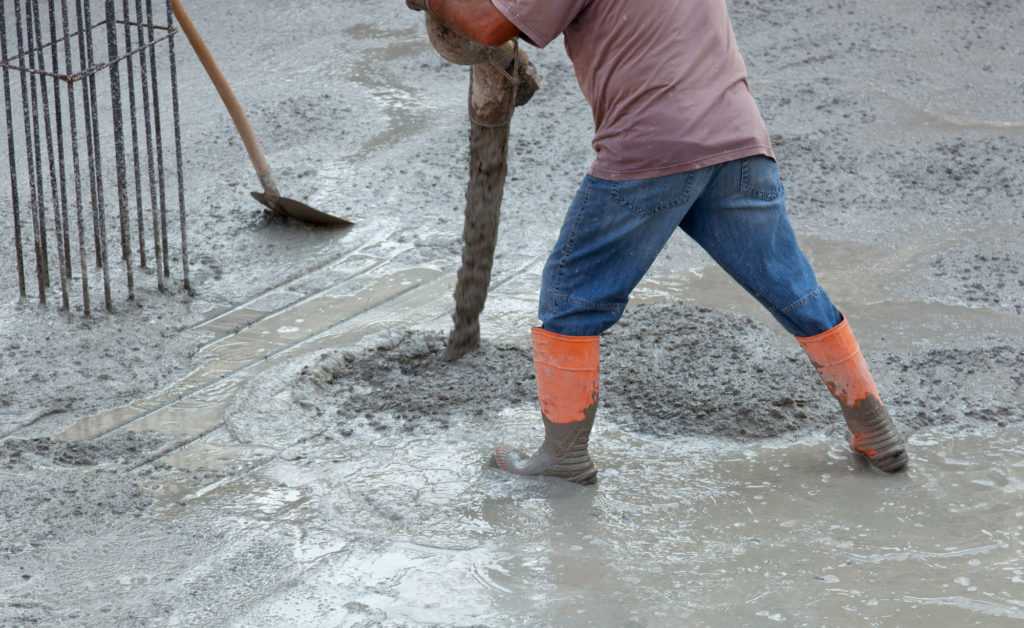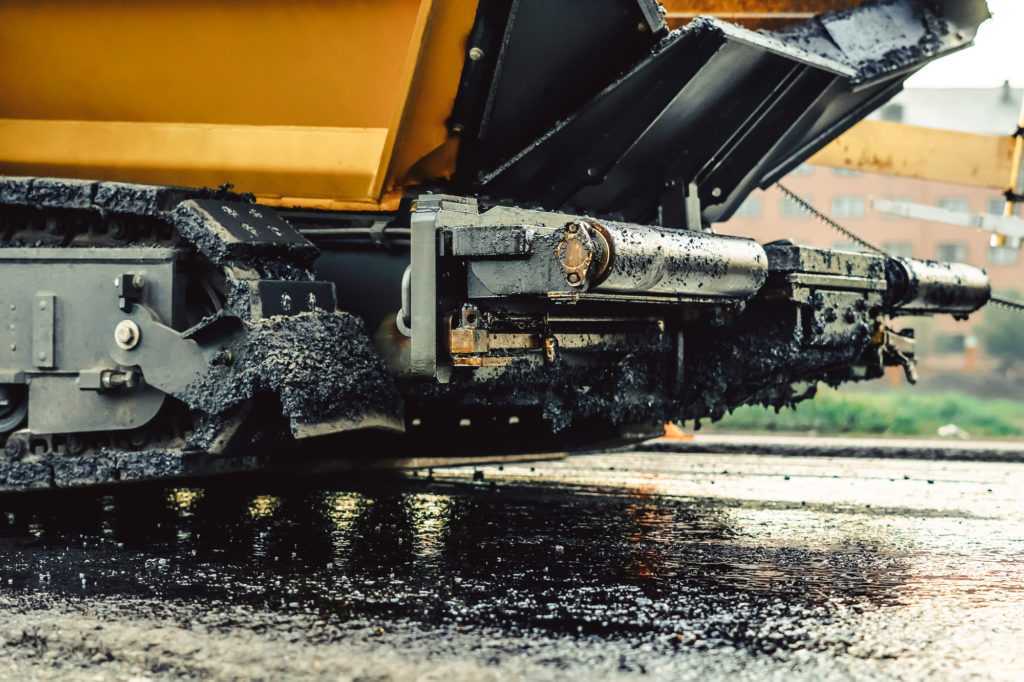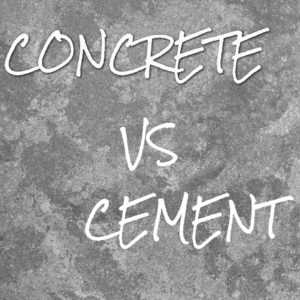How can you know when to use asphalt or concrete during a construction project? There are several common uses for each of these two materials. Main projects include parking lots, driveways, sidewalks, roads, and private pathways. But depending on the project, you might have to consider when to use asphalt vs concrete.
What’s The Difference Between Asphalt and Concrete?
Material
The main difference between asphalt and concrete is they are two different materials. You’ll usually see asphalt used for most streets, parking lots, and paved roads in the United States. This is because it gives a smoother surface for driving and makes for a rather quiet road compared to concrete. Concrete is stronger and therefore used for sidewalks and curbs. But concrete can have its own challenges depending on the climate you live in.
Concrete is made of a mixture of cement, sand, and gravel.
Asphalt is made of materials leftover from the manufacturing of oil and fossil fuels, mixed with various sands and/or stones.

Cost
Pricing is often considered one of the key differences of asphalt vs concrete paving. Asphalt is less expensive but generally doesn’t last as long as concrete. Another interesting thing to consider is that when it comes to asphalt, the initial cost is far more affordable. However, over time, asphalt requires repeated repair and maintenance. Concrete does need some maintenance and repairs, too, but generally not for much longer after more extensive wear and tear. When hiring a paving contractor make sure you discuss all the options for your specific project and see which would be best suited for you in the long-run.
Reaction to Climate
Here, in some parts of southern California, asphalt can absorb the hot sun and become up to 50 degrees hotter than the outside temperature. If it gets too hot, asphalt can sometimes “melt” or develop cracks. Parts of old asphalt can even begin to crumble. These things can lead to damage in the subsurface of the paving, eventually resulting in a need for removal and replacement of the asphalt.
Concrete is affected by weather, as well. It can contract or expand when the weather shifts drastically between hot or cold. These shifts make concrete prone to cracking or becoming unlevel. In colder climates where it reaches below freezing, newer concrete sidewalks can freeze before they dry fully. This can make it weaker over time, coming with all sorts of problems far sooner than necessary. Additionally, many people don’t realize that concrete can deteriorate sooner if salt is used on it for melting snow.

Visual Appeal
Certain paving projects require one or the other. The Asphalt vs Concrete question is not always an option, rather a strategic decision your paving contractor will put forth for the best results. But the look of both concrete and asphalt can be appealing if done properly.
The sleek, fresh look of new asphalt doesn’t compare to concrete in a large industrial parking lot. Bright, bold striping lines let people know they’re in a place of high standards and provide clear traffic direction for vehicles. Most parking lots benefit from being made of asphalt because it’s easily seal coated, it can last for years, and it’s cheaper to cover larger areas that will experience daily wear and tear.
Concrete is sturdier and gives a crisp, bright appeal for sidewalks or private side roads. Smaller, private business facilities can get away with using concrete instead of asphalt if the location is right. The only downside to concrete is since it’s light-colored, it can show stains or spots. However, the color of concrete can be customized using a special stain, if desired.
Asphalt vs Concrete: What Are the Pros and Cons of Each?
Asphalt Pros
- More cost-effective upfront
- Easier to repair by seal coating
- Aesthetically appealing to customers visiting larger commercial establishments
- More flexible material for extreme cold or hot climates
- Easier snow removal compared to concrete
- Provides one solid, smooth surface when installed properly
Asphalt Cons
- Requires continual maintenance to remain optimal
- Doesn’t last long if neglected
- Develops rough edges that require attention
- Often absorbs heat and can soften or weaken in hot climates
- Only one option of that dark color (hence the term “blacktop”)

Concrete Pros
- Can last decades with upkeep (up to 20 – 35 years!)
- Better customization options for colors
- Low maintenance
- Sturdier material means it can bear the heavier weight of vehicles
- Requires less repair over time, making it a better long-term investment
Concrete Cons
- More difficult to repair
- Installation cost can be twice as much as asphalt
- Develops cracks frequently
- Must be sealed in snowy climates to prevent salt damage
- Shows unsightly dirt and debris if not cleaned or maintained adequately
Paving Contractors Regarding Asphalt vs Concrete
A paving contractor is the best source of information to go to if you’re considering either concrete or asphalt for a construction/paving project. They will be able to help explain your best options depending on:
- Location
- Size of project
- Climate
- Pre-existing paving, if any
- ADA standards
- Public or private area
- Custom construction requirements
- and more
As paving contractors, we know both concrete and asphalt can be beneficial for all types of construction needs. Hiring a professional can ultimately save you thousands of dollars in the end. We always advise avoiding “Do-It-Yourself” type projects, even if for your own home, as it can lead to disaster.
If you’re in need of a new project that requires concrete or asphalt, contact us at South Coast Paving, Inc. to see why companies like In-N-Out, Target, and even Lowe’s works with only the best paving company in southern California!




